Back in the ’80s and ’90s, there was an abundant amount of family-orientated programming on network television. It was a time when mothers, fathers, children, and friends would universally enjoy series centered around family values, and relatable topics, but all offered with a real-to-life comedic twist. Offering special memories, perhaps one of the most accomplished television creators of this period was Michael Jacobs. A creator and producer who wrote and developed some of the era’s biggest shows including Boy Meets World, Dinosaurs, Charles in Charge, and My Two Dads, it stands to reason he is an award-winning talent. Continuing into present times with the hit series Girl Meets World, in 2023, Jacobs surprises audiences with a rare feature film project called Maybe I Do.
Only one of a handful of feature films Jacobs has done in his career, for this he acts as the writer, director, as well as producer, all while assembling an amazing cast that includes Diane Keaton, Richard Gere, Susan Sarandon, Emma Roberts, Luke Bracey, and William H. Macy. A story of love, commitment, and remembering what is important in life, Maybe I Do is much more than just a Romantic Comedy. Excited about the film, Michael Jacobs recently sat down to talk about his incredible career in television, the history behind Maybe I Do, plus more.
Cryptic Rock – You have had a very extensive career as a writer, producer, director, and creator in television and film through the years. You have done some very memorable projects through the years including Boy Meets World, My Two Dads, Charles in Charge, and Dinosaurs. Briefly tell us, how would you describe your career in film to this point.
Michael Jacobs – Well the first thing I learned, because I have four children, I wasn’t going to be seeing them as much as I would like to. Your other family is in the writer’s room; if you are going to have a project success, there is dedication and time. I decided early on that this was going to be one aspect of child raising. In all of the episodes I’ve ever done on television, I wanted to have morality aside. I wanted, when my kids watched them, some of the lessons learned and some of the moments that were had would be good honest moments that they would emulate. I’ve been very lucky.
One of my kids, whose name is Josh, is a wonderful adult now. When he was about six, he came to me and said, “I really like all your shows on television.” I said to him, “That’s so nice of you to say… which ones?” He said, “All of them.” I said, “What do you mean?” He thought every show on television was one. I said to him, “No, no, they’re not. (Laughs) What you need to do Josh is you go pick one show that you like and you come tell me about that show.” One show I had on the air was working really well, and he knew it was mine, so I told him not to that show, it had to be a different one. It took him a couple of months, but he came back to me and said, “I like the one where the baby dinosaur says, “not the mamma.” That was one of the most wonderful, satisfying moments I’ve ever had. He genuinely liked one of my things, and he had the world in front of him to choose from.
Josh was such a fan of Boy Meets World. We’ve had conversations, as an adult, about how it affected his views on love and relationships. The dichotomy is supposed to be between this being a fictional television show, and that real life is tougher, which was lost on him. The simple answer to your tough question is, that I always knew there was a responsibility in what I was doing… because it was going to be seen. It was going to be seen by kids, who I loved writing for, and people that were impressionable. The stories I told, I always wanted to have some merit.
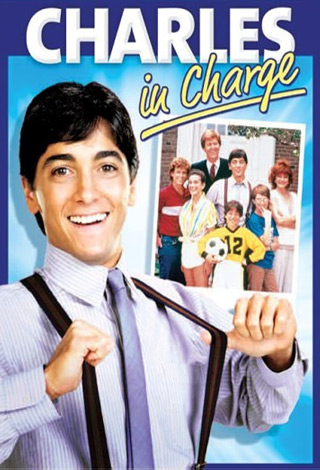
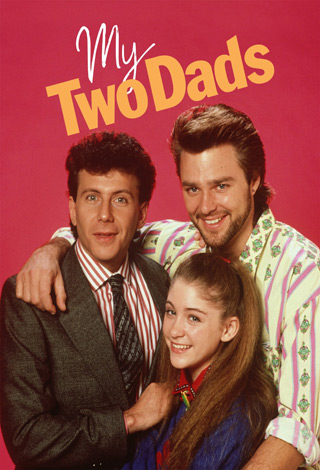
Cryptic Rock – Wow, it is amazing to hear the effect it had on your own son. The shows that you created during the ‘80s and ‘90s absolutely had a positive impact on an entire generation and are still beloved. You have spent a great deal of your career in television, but you have worked in theater, as well as film. Was television something you always wanted to get into, or was it something that became extremely successful for you, and you stuck with it through the years?
Michael Jacobs – It’s funny, I started my career and I was a person who loved television. I watched everything. I tried to learn what I could – how are they doing this? why does this work? and why am I feeling something? Someone asked me a question about what was the thing that made me want to do this at all. My answer was, and it’s a true answer, I was eleven years old, sitting in my room, and re-arranging the room as I did once a month. In the background on TV was the Million Dollar Movie and they played all these wonderful, old movies. I looked at the screen and Zero Mostel was jumping up and down on Gene Wilder… and I said, what is this?
Instantly put the Spiderman poster up on my wall, and I loved Spiderman, so the fact that Mel Brooks turned my head to the screen and kept me there for the next two hours… I had never seen anything like it! I was laughing, and what he did to the eleven-year-old was crazy and wonderful; to this date, I think The Producers (1967) is a masterpiece. I wanted to be able to make people laugh or feel something.
I had a choice in my career very early on – movies or television. The reason I chose television was because I felt like you could do a movie for years; from the conception, to the idea, to the editing room, the finished product, to the audience sitting in front of the screen. You could also do, in those two years, fifty episodes of television. At my heart, I like to tell stories, and I wanted to tell as many of them as I could.
I had this long television career, and after the last series I did (which was a few years ago), I thought, what do I want to do now? I thought about the first thing I ever did, which was this play. I looked at the script, and I thought, “I don’t think about these things at all now.” I was nineteen or twenty when I wrote the play, so I rewrote it. When I first wrote it, I wrote it from the point of view of the kids. I rewrote it from the point of view of the adults, and it’s a very different piece now.

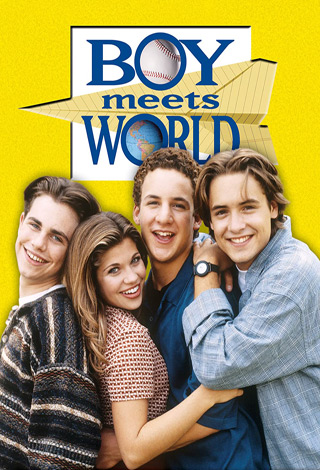
Cryptic Rock – And the piece you are speaking of is Maybe I Do. This is a feature film recently released, written and directed by you. A fun film to watch, you also had a fantastic, all-star cast of actors/actresses to work. So, this is something you initially wrote as a nineteen-year-old and re-wrote recently as an adult?
Michael Jacobs – Yes. It ran on Broadway for about a month; it had a great life in stock in amateur theater all over the place. The first thing I did was re-write the play, I put it up to see if it worked, and it worked beautifully. Then I wrote the screenplay, and now here we are.
The point of the story is, what do you think when you’re nineteen or twenty years old, and then live a life, and look at exactly the same thing, and what do you think now… it seemed very interesting to me to write it again.
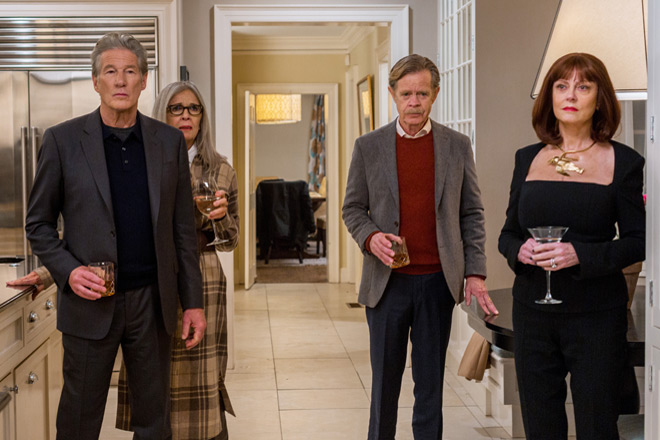
Cryptic Rock – It is very interesting. As you mature, live life, and grow, your points of view change. That is what May I Do is really about; it’s about life and love. It has fantastic dialogue in it. The cast do an amazing job of bringing the dialogue and their characters to life. What was it like working with this all-star cast?
Michael Jacobs – It’s once in a lifetime that these people fell into place like this. I had a phone call with a fellow from Endeavor Content, which became the Fifth Season. He said, “I read your script, what do you think of Diane Keaton? I think Diane would like to meet and discuss this with you.” It’s funny, my daughter, Rachel, is in the business. My younger son, Danny, followed my wife, who is a doctor, and he is just finishing up med school. I called Rachel before I spoke to Chris with Endeavor, and she said, “Let me read the script.” She read the script and said, “I think you should get Diane Keaton.” We both laughed. (Laughs) Diane wanted to do it.
Then there was Susan Sarandon and William H. Macy who read it and gave it an immediate yes. Richard Gere read it, and we spoke on the phone for about an hour and a half. It was just surreal, I was on the phone with Richard Gere, and I felt like we had known each other forever. We just hit it off completely, and that shows in the film because Richard Gere and Diane Keaton are really playing a relatable every man and every woman. You can associate with Richard’s complete fear of mortality and wanting to have some adventure when he says, “If I have twenty years left, and I can remember twenty years ago as if it was last Tuesday, what do I do?” He basically informed the audience of how he stumbled into this terrible thing that he did. It’s not normal behavior for him. Then Diane is playing someone who has been loyal, and loving and has been a victim of simply wanting conversation. The point of their story is, how many times do we not speak to the person we love… because that’s the person who is always there? Yet, that is the person we need to speak to because love is in the conversation. That’s the story of Diane and Richard’s characters. They bring it to the film so beautifully.
With Susan, we had long conversations about, whether is she a villain. No, she just thinks she is deserving of more than she has gotten. She is unfulfilled because of who she believes she is and the life she believes she should be living. That’s a sentiment that is weighed on William Macy, whose character at core, is the most decent man in the universe.
Bill Macy was the first person to arrive at Montclair where we shot this; we stayed at the Hotel George. Bill and I sat down, and he is just the absolute perfect actor. The joy is that he is also this spectacular human being. We had dinner every other night, and we spoke about life, our children, our wives, what he had, and what we wanted. I understand Bill was looking for a backstory, and he certainly found it. But I got to know who he was and what he naturally brought through his process. The moments in the film that all of them have I think are directly related to the ability for all of us to have conversation and understand. What’s paramount in this film is that the audience believes that is real because it’s such a crazy over-the-top circumstance.
The choice was, do we play all the comic rhythms? Or do we ground this thing, and this actually happening between us? The kids in the film have a real decision to make. I think frankly the film would play both ways. The film is marketed as a Romantic Comedy, but it isn’t, and we found that out very early. I thought the best way to go about the film was to see what organically happened in the scenes between all of the actors. The rhythms that they brought were so real. The conversations between Richard and Susan were so easy compared to the whole conversation between Richard and Diane… and that was husband and wife. When you are behind the lines and you are thinking, my gosh, the conversation between a man who’s known a woman all his life, and man who has had very limited experience with this other woman, but they’re having banter and it’s rhythmic, whereas the other conversation is being stuttered. That struck me as very real. I hope that the audience takes that away as well.



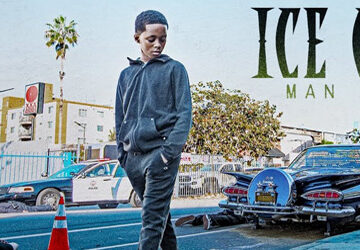


No comment